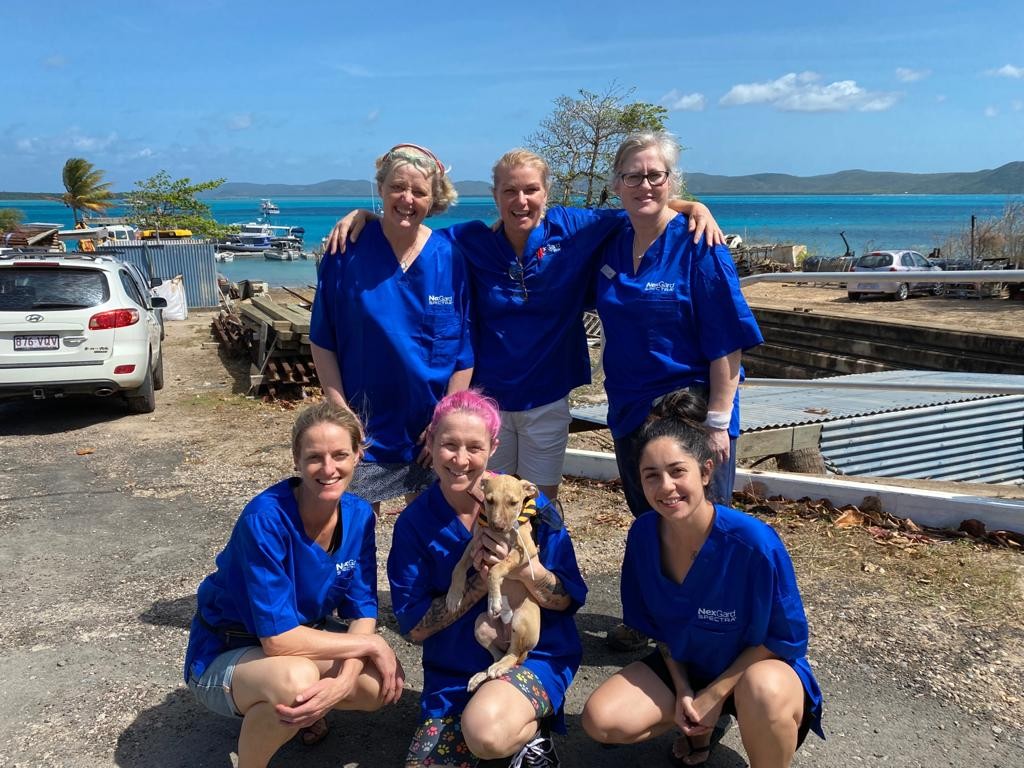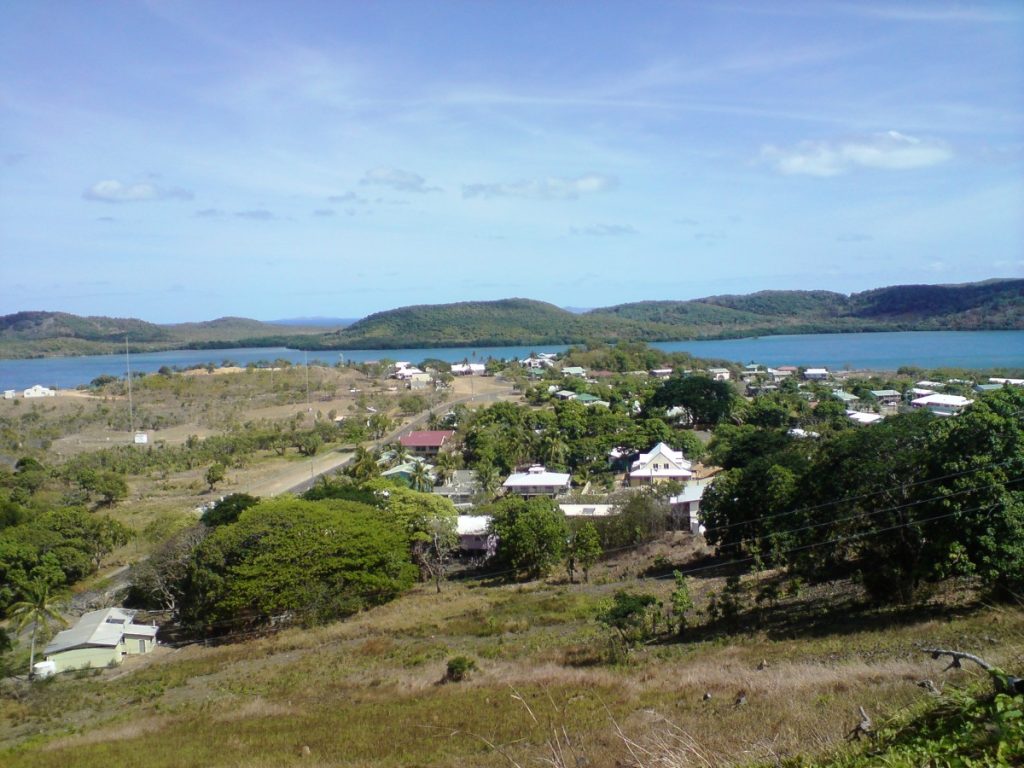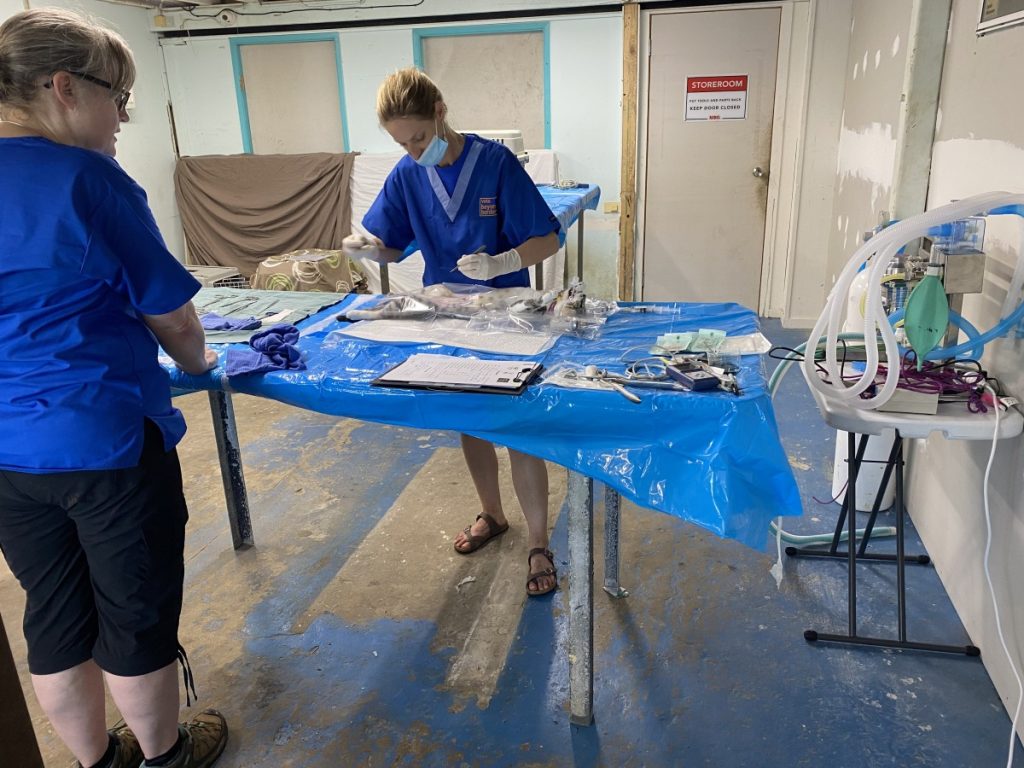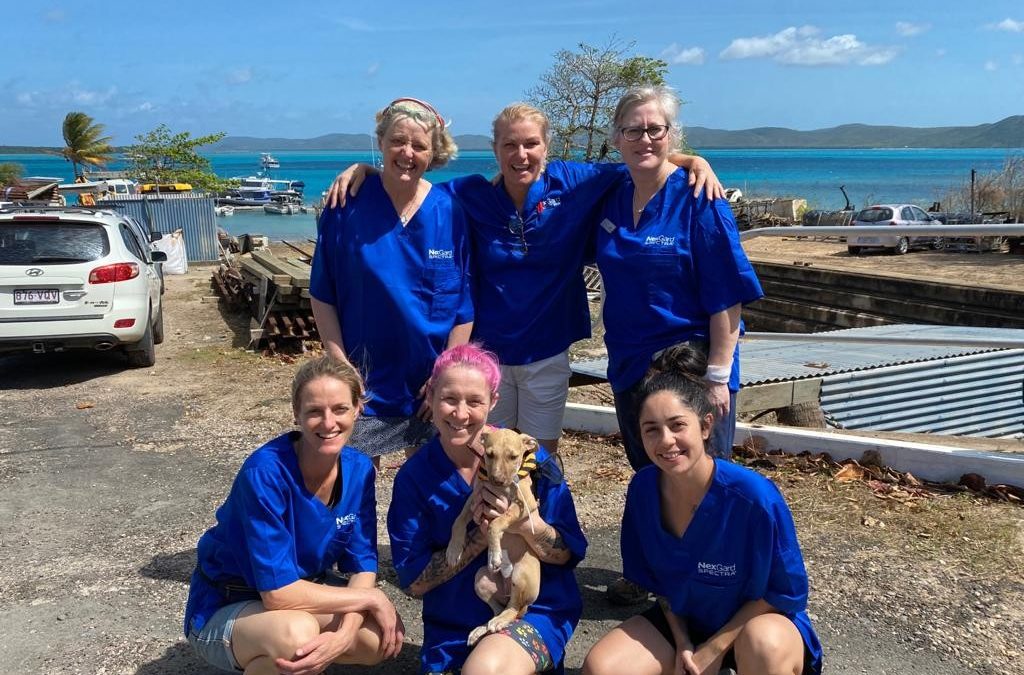Thursday Island Rescue Mission: Recently, the Animal Welfare League Queensland and Vets Beyond Borders got together with the Thursday Island Animal Support Group. As a team, they completed a successful desexing pilot program on the Island.
As the champions for animals in need, AWLQ is committed to creating lasting changes for animals in society. In addition to the shelter work, AWLQ provides community-based support programs with a focus on prevention. The Thursday Island Pet Support Program falls into this remit.

Thursday Island
THURSDAY ISLAND: THE PROBLEM
Sonja Einersen is from the Thursday Island Animal Support Group:
On Thursday Island, we don’t get vet visits very often, and there isn’t a resident vet on the island. We used to have a vet that flew in, but recently, she retired. Sometimes a vet from Cairns comes up, but by the time they get up to the island, the cost is prohibitive. So, we have quite a large problem with dogs and cats on the island.
The Thursday Island Animal Support Group started talking to AWLQ about the possibility of a vet service on the island. Could pet owners get some low-cost or free surgery procedures done?
All of us in the support group are volunteers. We were excited when the collaboration went ahead. At the moment, a vet only visits the island 3 times a year due to Covid restrictions. And, it costs $600 to have a dog desexed. This is out of the reach of a lot of people. In fact, we haven’t had any surgical services on the island for quite some time. If animals got sick they would be euthanised or would just die due to a lack of services.
PROGRESS
Since our organisation got up and running, we’ve helped quite a number of dogs. From bee or wasp stings right through to being hit by cars or stray dog attacks. We try our best to fix them. We have stapled up a few dogs, and we hold antibiotics that we can give out under the supervision of the vet. But there are a lot of stray dogs on the island. The council does collect these, however if they weren’t able to re-home them, then they are euthanised.
Sometimes people end up with a dog that they don’t really want. And then it ends up having litter after litter. They try to get rid of puppies. So, we end up with lots of stray dogs. The council work with us and give us a lot of dogs that they find or that have been surrendered. A lot of people who come to Thursday Island just for a couple of years, end up rescuing a stray off the street, and end up bringing dogs back to the mainland with them. That’s quite a common story. To stop the cycle, we need large-scale desexing to happen. That’s where Vets Beyond Borders come in. Sylvana, a project manager with AWLQ, is the person that put us all in contact. She talked with Vets Beyond Borders and got them on board.
THURSDAY ISLAND: Looking Ahead
There’s still a lot to do. We’re hoping if we can continue, we’ll start to get numbers of strays and unwanted animals under control. There are still certain areas on the island with pretty big problems. We also need to educate the local population. There’s a lot of misinformation about having your dogs desexed. People don’t believe in desexing male dogs, and they think that the females should have one litter before they get desexed. But we urgently need to desex the animals here on Thursday Island in significant numbers.
The cat problem is probably worse than the dog problem. We also need to desex the cats. The feral cat population is a huge problem on the island, but we have been rehoming cats and kittens successfully in the last few months as well. They’re a little bit different to dogs, because they’re not as visible. They go off into the bush and look after themselves. This is terrible for the local wildlife.
I think the more we can get out there, the more we will lessen the issue. We just need to put a dent in getting existing animals desexed so it’s not a continued cycle.

SYLVANA WENDERHOLD – PROJECT MANAGER
Sylvana Wenderhold is a Project Manager for AWLQ: The first time we did the desexing program was in September, and I was the coordinator. AWLQ did all the organizing and then Vets Beyond Borders supplied the team of vets and the vet nurse. I coordinated with the Thursday Island Animal Support Group to get the location and they put out the word. We flew to Thursday Island and set up a clinic in a “shed” and we desexed for four days.
I am a big believer in the desexing programs – I started the National Desexing Network. My current role is rural and regional programs manager. What I’m trying to do is to help areas that don’t currently have any desexing programs. With Thursday Island, the problem is just the sheer number of animals and no veterinary service. Next year we hope to go four or five times to get the population under control. There are just so many puppies born, and we haven’t really even started tapping into the cats.
I’m actually on my way now to the airport to pick up two dogs from Thursday Island! One is a four- month-old puppy, and the other one is a bit older. It was one of only ones that didn’t heartworm – all the other ones had it. It’s very hard for us to rehome them when they have heartworm.
Donating AWLQ helps because obviously it costs us money to go there and set this all up. We pay for all the pharmaceuticals and the flights. We do ask the owners on the island for a donation, which almost all of them give us. They’re all very thankful that we are there helping.

To find out more about the work of the AWLQ, click here.

Editor for Silver Magazine Gold Coast

